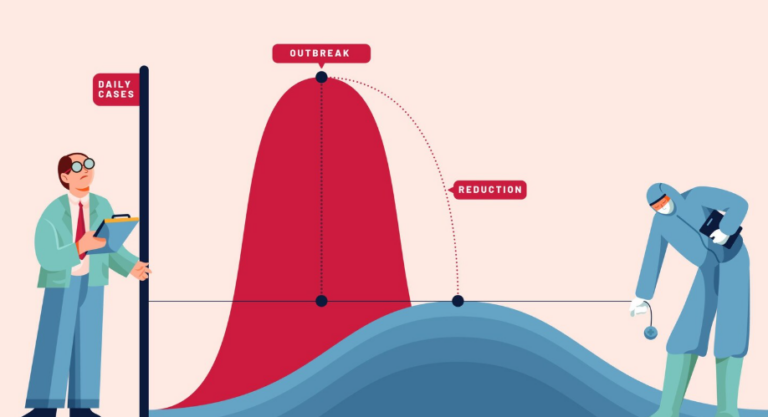
In the world of big data, the size of datasets is growing exponentially, outpacing the memory capacity of conventional computing resources. This creates challenges for data analysts and data scientists who need to process, analyse, and derive insights from such massive datasets. Fortunately, tools like Python’s Dask are making it easier to handle these challenges. Dask is an open-source parallel computing library that scales Python for larger-than-memory datasets and distributed computing. As data becomes an increasingly important resource in cities like Pune, which are becoming tech hubs, the demand for skilled professionals who understand tools like Dask is also growing. For those interested in making data-driven decisions, enrolling in a data analyst course can provide them with the foundational skills needed to work with these advanced tools.
The Challenge of Larger-than-Memory Datasets
In the past, data analysts primarily worked with datasets that could be loaded into memory without too much concern for scalability. However, with the rapid increase in data generation, driven by IoT, social media, and other data-rich environments, it’s now common to deal with datasets that are too large to fit into memory. Traditional approaches of reading data into memory, processing it, and then writing it back are no longer feasible.
Larger-than-memory datasets are not only common but also critical to industries like finance, healthcare, and e-commerce, where real-time data processing can unlock valuable insights. In Pune, a growing tech ecosystem is witnessing businesses that rely on big data analytics for customer insights, predictive maintenance, and supply chain optimisation. As a result, the need for efficient tools and frameworks is becoming a priority, and Dask is one of the key solutions that addresses this issue.
Dask: An Overview of the Framework
Dask is designed to handle large datasets by enabling parallel computing and distributed processing. Unlike other libraries that require significant hardware changes or complex configurations, Dask integrates seamlessly with Python’s existing ecosystem, making it easy for analysts and developers to transition from traditional tools like Pandas and NumPy.
Dask extends the capabilities of Pandas, NumPy, and Scikit-learn to scale beyond a single machine. It works by breaking up a large computation into many smaller, manageable tasks that can be processed in parallel. This allows data analysts to work with large datasets that would typically exceed their machine’s memory capacity.
Key Features of Dask
- Scalability: Dask scales from a single machine to a distributed computing cluster. It can handle both larger-than-memory and distributed computations, which makes it suitable for a variety of big data applications.
- Flexible Computations: Dask allows users to define computations using high-level APIs similar to those found in Pandas and NumPy. This means that analysts familiar with these libraries can leverage Dask without steep learning curves.
- Parallel Processing: Dask is optimised for parallelism, meaning it splits the workload across multiple cores or even machines in a cluster. This leads to faster computation times and more efficient use of resources.
- Integration with Other Libraries: Dask integrates with a range of Python libraries along with frameworks, such as TensorFlow, Scikit-learn, and Hadoop. This allows data analysts to build end-to-end solutions using familiar tools while benefiting from Dask’s scalability.
- Optimized for I/O: Dask handles large I/O operations efficiently, including data stored on disk, cloud storage, or in distributed file systems like HDFS.
Real-World Applications of Dask in Pune
In Pune, as in other tech-forward cities, industries that deal with vast amounts of data are adopting tools like Dask for handling large datasets. Whether it’s processing customer behavior data for retail, analyzing financial market trends, or working with sensor data for IoT applications, Dask is emerging as an essential tool.
1. E-Commerce and Retail Analytics
Retailers in Pune are increasingly using Dask to analyse massive datasets generated by online shopping platforms. These datasets include transaction histories, browsing patterns, and user reviews — all of which are crucial for understanding consumer behaviour. Dask allows businesses to run large-scale analytics on these datasets, providing insights that help them optimise pricing strategies, personalise marketing campaigns, and forecast demand more accurately.
2. Healthcare Analytics
Healthcare systems generate vast amounts of data, including patient records, medical imaging data, and clinical trial results. Dask’s ability to scale allows healthcare providers in Pune to process and analyse this data efficiently, helping them improve patient care, optimise resource allocation, and conduct epidemiological studies.
3. Financial Services
In the financial sector, real-time data processing is critical. Dask is enabling financial institutions in Pune to analyse transaction data in real time, detect fraudulent activities, and optimise trading algorithms. The ability to scale computations across multiple nodes allows these institutions to handle massive datasets, including transaction records and market data feeds, efficiently.
Why Data Analysts Need Dask Knowledge
As more companies in Pune move towards big data analytics, the demand for several skilled data analysts continues to rise. Professionals who are well-versed in tools like Dask can handle larger datasets, improve decision-making processes, and help businesses optimise their operations. A data analyst course in Pune that covers distributed computing, parallel processing, and tools like Dask can prepare individuals for these challenges and equip them with the skills needed to work with big data.
Moreover, in today’s fast-paced job market, those who can demonstrate proficiency in handling real-time data and larger-than-memory datasets have a competitive advantage. The ability to work with Dask also opens doors to job opportunities in industries ranging from healthcare and finance to e-commerce and telecommunications.
How Dask Simplifies Data Analysis
Before Dask, analysts were limited to working with datasets that could fit into memory. This constraint forced them to either down-sample their data or discard valuable information. Dask solves this problem by allowing analysts to process entire datasets — even those stored in cloud storage or distributed across multiple machines — without worrying about memory limitations.
Dask does this by providing an abstraction layer that lets you work with data as though it were in memory, but behind the scenes, it breaks the data into chunks, processes those chunks in parallel, and then combines the results. This makes it possible to analyse huge datasets without needing massive computational resources.
Conclusion
Dask is revolutionising how data analysts handle larger-than-memory datasets, providing a powerful solution for businesses dealing with massive volumes of data. In Pune, where the tech industry is rapidly growing, learning how to use Dask effectively can open doors to many opportunities in big data analytics. By enrolling in a course and gaining hands-on experience with Dask, professionals can position themselves as experts in scalable data analysis and stay ahead in the competitive field of data analytics.
Business Name: ExcelR – Data Science, Data Analyst Course Training
Address: 1st Floor, East Court Phoenix Market City, F-02, Clover Park, Viman Nagar, Pune, Maharashtra 411014
Phone Number: 096997 53213
Email Id: enquiry@excelr.com







